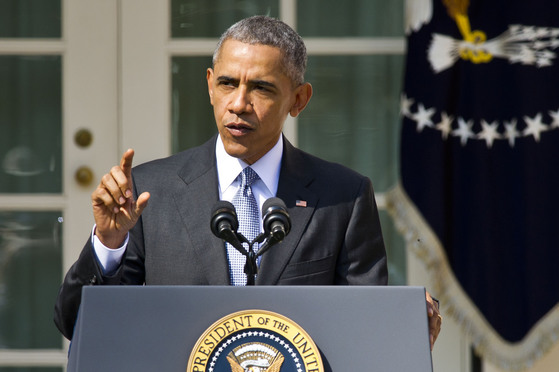Five Labor and Employment Rollbacks That May Happen Under Trump
Here are five initiatives that labor and employment counsel said could be at risk come January 2017.
November 22, 2016 at 11:46 AM
6 minute read
 President Barack Obama. (Photo: Diego M. Radzinschi)
President Barack Obama. (Photo: Diego M. Radzinschi)
Originally published on Corporate Counsel. All rights reserved. This material may not be published, broadcast, rewritten, or redistributed.
For nearly eight years under President Barack Obama, labor and employment practitioners have been kept busy by a host of new federal policies—largely promulgated through regulations—that have changed everything from the legal definition of “joint employer” to how federal contractors report alleged labor violations.
But with the election of Donald Trump and a Republican majority in both the Senate and House of Representatives, some of these policies may not last.
“There's no doubt that this was a historic election, in not only the political sense, but in its implications for employers and employees,” said Mark Kisicki, a shareholder at Ogletree Deakins' Phoenix office who represents employers.
Trump already has said he would like to repeal many parts of the Affordable Care Act and some believe he may seek to eliminate the U.S. Department of Labor's Fiduciary Rule, which set new standards in the retirement planning industry to limit conflicts of interest. But there are other labor and employment rules and regulations that could be eliminated by Congress, by federal regulatory agencies, or with the stroke of Trump's pen.
Here are five initiatives that labor and employment counsel said could be at risk come January 2017:
Executive Orders
The Fair Pay and Safe Workplaces order, which requires companies to disclose data about labor violations as part of the bidding and selection process for federal contracts, was slated to take effect Oct. 25 but is partially enjoined nationally by a preliminary injunction from a Texas federal court. Under the order, companies would be forced to disclose any adverse findings from courts and agencies under 14 federal labor laws and their state equivalents with a three-year lookback period, even if the case remains under appeal or unresolved
Steven Suflas, a partner in Ballard Spahr's Denver and Cherry Hill, New Jersey, offices, believes that the order, dubbed the “blacklisting rule” by detractors, is the most likely executive order to get eliminated by the new administration. “On my list that would be the first one,” he said.
Joint Employer Standard
The National Labor Relations Board standard on joint employment, recently modified, is another likely candidate for modification or elimination, labor and employment lawyers said. The NLRB decided in its Browning-Ferris Industries ruling in August 2015 that a relationship between one company and another need not involve direct control—only “indirect control”—for the two to share liability for one company's labor and employment violations as joint employers. The joint employer change has also affected franchisers and their franchisees as well as companies that use staffing agencies.
The new NLRB standard, which was echoed by the Department of Labor in its own January 2016 joint employer guidance, has raised the ire of employers and in Congress. Even before the election, Republicans in Congress drafted legislation to dismantle the joint employer rule. Kisicki said that after Obama has left office in January and a veto from him is no longer an obstacle to passing the bill, the measure could be “easily adopted” by the Republican-controlled legislature.
“If there's a contractor on premises, it's much easier for companies to be found to be joint employers of that contractor's employees and be found liable for labor, wage and hour and other kinds of potential violations,” said Philip Rosen, a principal at Jackson Lewis' New York office, of the new joint employer standard.
“Quickie” Union Election Rules
Attorneys say that the NLRB's so-called “quickie” union election rules could also be overturned by Trump's appointees over the next few years. These rules, which went into effect in April 2015, have tightened the timeframe between the filing of a petition to unionize and a union election.
There may be less motivation to overturn these rules than others, however, as employers' fears that they would greatly increase the union win rate were not realized. The Wall Street Journal reportedearlier this year that even though the time from petition to election is faster—dropping from about five weeks on average to three weeks—the actual union election win rate hasn't changed significantly.
DOL Overtime Rules
New overtime rules slated to take effect on Dec. 1 could also be targeted by the Trump administration. The Labor Department finalized the rules in May, and estimates the new rules would expand overtime coverage to more than 4 million additional workers.
Today, under the Fair Labor Standards Act, employers must pay their nonexempt employees time-and-a-half for working more than 40 hours per week only if the employees make less than $23,660 per year. But as of Dec. 1, more employees will get this mandatory overtime, as the exempt salary threshold will be raised to $47,476.
Two lawsuits seeking injunctions of the rule have already been filed—one from a coalition of 21 U.S. states and another from the U.S. Chamber of Commerce.
Suflas said that even if the new overtime rules are voided eventually, it might not be easy for companies to undo changes they've already made to employee salaries in order to come into compliance with the new rule by the beginning of December. For instance, if employee pay has been raised to get over the overtime salary threshold, most employees likely wouldn't be happy to have their paychecks reduced.
Arbitration Agreements
Marcia Goodman, a partner at Mayer Brown in the firm's Chicago office, said President-elect Trump will face the challenge of balancing populist campaign promises to support working people with pro-business Republican Party values.
She suspects “more structural and less obvious” policies, such as the less-often discussed but still significant issue of mandatory arbitration agreements, are the most likely targets for change.
Over the last few years, Obama's NLRB has challenged agreements between companies and workers that require all employment-related disputes to be settled in arbitration. The board and other plaintiffs have argued that the right to litigate in these cases is covered by the National Labor Relations Act.
An NLRB under Trump could curry favor with businesses by no longer pursuing these cases. “If they were to stop taking a position on arbitration agreements, that would have a big impact on the workplace and on employers,” Goodman said. “It seems to me that could well happen.”
This content has been archived. It is available through our partners, LexisNexis® and Bloomberg Law.
To view this content, please continue to their sites.
Not a Lexis Subscriber?
Subscribe Now
Not a Bloomberg Law Subscriber?
Subscribe Now
NOT FOR REPRINT
© 2025 ALM Global, LLC, All Rights Reserved. Request academic re-use from www.copyright.com. All other uses, submit a request to [email protected]. For more information visit Asset & Logo Licensing.
You Might Like
View All
With DEI Rollbacks, Employment Attorneys See Potential for Targeting Corporate Commitment to Equality
7 minute read
California Court Denies Apple's Motion to Strike Allegations in Gender Bias Class Action

Trump Administration Faces Legal Challenge Over EO Impacting Federal Workers
3 minute read
Trending Stories
Who Got The Work
J. Brugh Lower of Gibbons has entered an appearance for industrial equipment supplier Devco Corporation in a pending trademark infringement lawsuit. The suit, accusing the defendant of selling knock-off Graco products, was filed Dec. 18 in New Jersey District Court by Rivkin Radler on behalf of Graco Inc. and Graco Minnesota. The case, assigned to U.S. District Judge Zahid N. Quraishi, is 3:24-cv-11294, Graco Inc. et al v. Devco Corporation.
Who Got The Work
Rebecca Maller-Stein and Kent A. Yalowitz of Arnold & Porter Kaye Scholer have entered their appearances for Hanaco Venture Capital and its executives, Lior Prosor and David Frankel, in a pending securities lawsuit. The action, filed on Dec. 24 in New York Southern District Court by Zell, Aron & Co. on behalf of Goldeneye Advisors, accuses the defendants of negligently and fraudulently managing the plaintiff's $1 million investment. The case, assigned to U.S. District Judge Vernon S. Broderick, is 1:24-cv-09918, Goldeneye Advisors, LLC v. Hanaco Venture Capital, Ltd. et al.
Who Got The Work
Attorneys from A&O Shearman has stepped in as defense counsel for Toronto-Dominion Bank and other defendants in a pending securities class action. The suit, filed Dec. 11 in New York Southern District Court by Bleichmar Fonti & Auld, accuses the defendants of concealing the bank's 'pervasive' deficiencies in regards to its compliance with the Bank Secrecy Act and the quality of its anti-money laundering controls. The case, assigned to U.S. District Judge Arun Subramanian, is 1:24-cv-09445, Gonzalez v. The Toronto-Dominion Bank et al.
Who Got The Work
Crown Castle International, a Pennsylvania company providing shared communications infrastructure, has turned to Luke D. Wolf of Gordon Rees Scully Mansukhani to fend off a pending breach-of-contract lawsuit. The court action, filed Nov. 25 in Michigan Eastern District Court by Hooper Hathaway PC on behalf of The Town Residences LLC, accuses Crown Castle of failing to transfer approximately $30,000 in utility payments from T-Mobile in breach of a roof-top lease and assignment agreement. The case, assigned to U.S. District Judge Susan K. Declercq, is 2:24-cv-13131, The Town Residences LLC v. T-Mobile US, Inc. et al.
Who Got The Work
Wilfred P. Coronato and Daniel M. Schwartz of McCarter & English have stepped in as defense counsel to Electrolux Home Products Inc. in a pending product liability lawsuit. The court action, filed Nov. 26 in New York Eastern District Court by Poulos Lopiccolo PC and Nagel Rice LLP on behalf of David Stern, alleges that the defendant's refrigerators’ drawers and shelving repeatedly break and fall apart within months after purchase. The case, assigned to U.S. District Judge Joan M. Azrack, is 2:24-cv-08204, Stern v. Electrolux Home Products, Inc.
Featured Firms
Law Offices of Gary Martin Hays & Associates, P.C.
(470) 294-1674
Law Offices of Mark E. Salomone
(857) 444-6468
Smith & Hassler
(713) 739-1250








